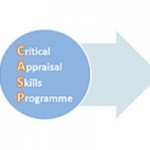
4 – Earlier is not necessarily better
In this Chapter: Introduction (this page) Lessons from neuroblastoma screening Weighing benefits and harms Phenylketonuria screening: clearly beneficial Abdominal aortic […]
| 0 Comments
Know Your Chances
This book has been shown in two randomized trials to improve peoples' understanding of risk in the context of health care choices.
| 0 Comments | Evaluated
Calling Bullshit Syllabus
Carl Bergstrom's and Jevin West's nice syllabus for 'Calling Bullshit'.
| 0 Comments
Like a bridge overdiagnosis
James McCormack with another of his brilliant parodies, warning about the dangers of becoming inappropriately labelled as ill.
| 0 Comments
Screen test
Ben Goldacre notes that even if people realize that screening programmes have downsides, people don’t regret being screened.
| 0 Comments
Cancer Screening Debate
This blog discusses problems that can be associated with cancer screening, including over-diagnosis and thus (unnecessary) over-treatment.
| 0 Comments
Misconceptions about screening
Screening should not be for everyone or all diseases. It should only be offered when it is likely to do good than harm.
| 0 Comments
Screening – CASP
This module on screening has been designed to help people evaluate screening programmes.
| 0 Comments
Making Sense of Screening
Screening tests can cause harm. This guide helps you to make sense of claims about screening for health conditions.
| 0 Comments
Annals Graphic Medicine: How screening is portrayed in the media
A cartoon series addressing the theme "Earlier is not necessarily better".
| 0 Comments
Right to remain anxious
Earlier testing is not always better, and can lead to overdiagnosis, overtreatment and anxiety.
| 0 Comments
De-awareness day
Earlier testing is not always better, and can lead to overdiagnosis and overtreatment.
| 0 Comments
Alicia
Earlier testing is not always better, and can lead to overdiagnosis and overtreatment.
| 0 Comments
Gertrud
Exaggeration and hopes or fears can lead to unrealistic expectations about treatment effects.
| 0 Comments
Understanding Overdiagnosis bias
Gilbert Welch’s 14-min video discussing the risks of overdiagnosis bias and screening.
| 0 Comments
Understanding lead-time bias
Gilbert Welch’s 10-min video explaining why survival ALWAYS rises following early detection -- even if no one is helped.
| 0 Comments
Signals of overdiagnosis
Gilbert Welch’s 8-min video showing how population screening for disease leads to overdiagnosis.
| 0 Comments
Smart Health Choices: making sense of health advice
The Smart Health Choices e-book explains how to make informed health decisions.
| 0 Comments
Who has diabetes?
So how do we decide who has diabetes? When I was in medical school, our numerical rule was this: if […]
| 0 Comments
From person to patient
Screening will inevitably turn some people who test ‘positive’ into patients – a transformation not to be undertaken lightly. ‘If […]
| 0 Comments
Genetic tests: sometimes useful, often dodgy
Not so long ago ‘genetic testing’ was more or less confined to generally rare, single-gene disorders – for example, the […]
| 2 Comments
Lung cancer screening: early but not early enough?
Screening may detect disease earlier, but not always early enoughto make a difference (see Figure). Some cancers, for example lung […]
| 0 Comments
Prostate cancer screening: clear harms with uncertain benefits
Prostate cancer is the second most common cancer in men worldwide,14 and broadly falls into two types. Some men have […]
| 0 Comments
Breast cancer screening: well established but remains contentious
Since routine breast screening with mammography is well established in many countries one could well assume that mammographic screening must […]
| 0 Comments
Abdominal aortic aneurysm screening: proceed with care
At the other end of the age spectrum, abdominal aortic aneurysm screening can also be beneficial. The aorta is the […]
| 0 Comments
Phenylketonuria screening: clearly beneficial
Newborn babies are routinely screened for an inherited disease called phenylketonuria (PKU). Babies with PKU are unable to process phenylalanine, […]
| 0 Comments
Generating and investigating hunches about unanticipated adverse effects of treatments
Generating hunches about unanticipated effects of treatments Unanticipated effects of treatments, whether bad or good, are often first suspected by […]
| 2 Comments
The Screening Circus
In 2009, a recently retired professor of neurology with a long-standing interest in stroke prevention learnt that neighbours had received […]
| 0 Comments
Don’t play poker with your genes
‘Acting on the knowledge of a single (or even a few) gene variants is similar to betting all your money […]
| 0 Comments
Selling screening
‘Selling screening can be easy. Induce fear by exaggerating risk. Offer hope by exaggerating the benefit of screening. And don’t […]
| 0 Comments
Discoverer of PSA speaks out
‘The test’s popularity has led to a hugely expensive public health disaster. It’s an issue I am painfully familiar with […]
| 0 Comments
Overdiagnosing prostate cancer
Prostate cancer has been described as the par excellence example of overdiagnosis. This does not mean that there are not […]
| 0 Comments
Don’t assume early detection is worthwhile
‘Screening for neuroblastoma illustrates how easily one can fall into the trap of assuming that because a disease can be […]
| 0 Comments
Is anyone normal?
Whole-body CT scans Among the tests on offer at private clinics are whole-body computed tomography (CT) scans to look at […]
| 0 Comments
What screening aims to achieve and why evidence matters
The examples we have already given show that, before rushing headlong into widespread screening, it is worth pausing a moment […]
| 3 Comments
Lessons from neuroblastoma screening
Experience with screening for neuroblastoma – a rare cancer that mainly occurs in young children – is instructive in several […]
| 2 CommentsNo Resources Found
Try clearing your filters or selecting different ones.
